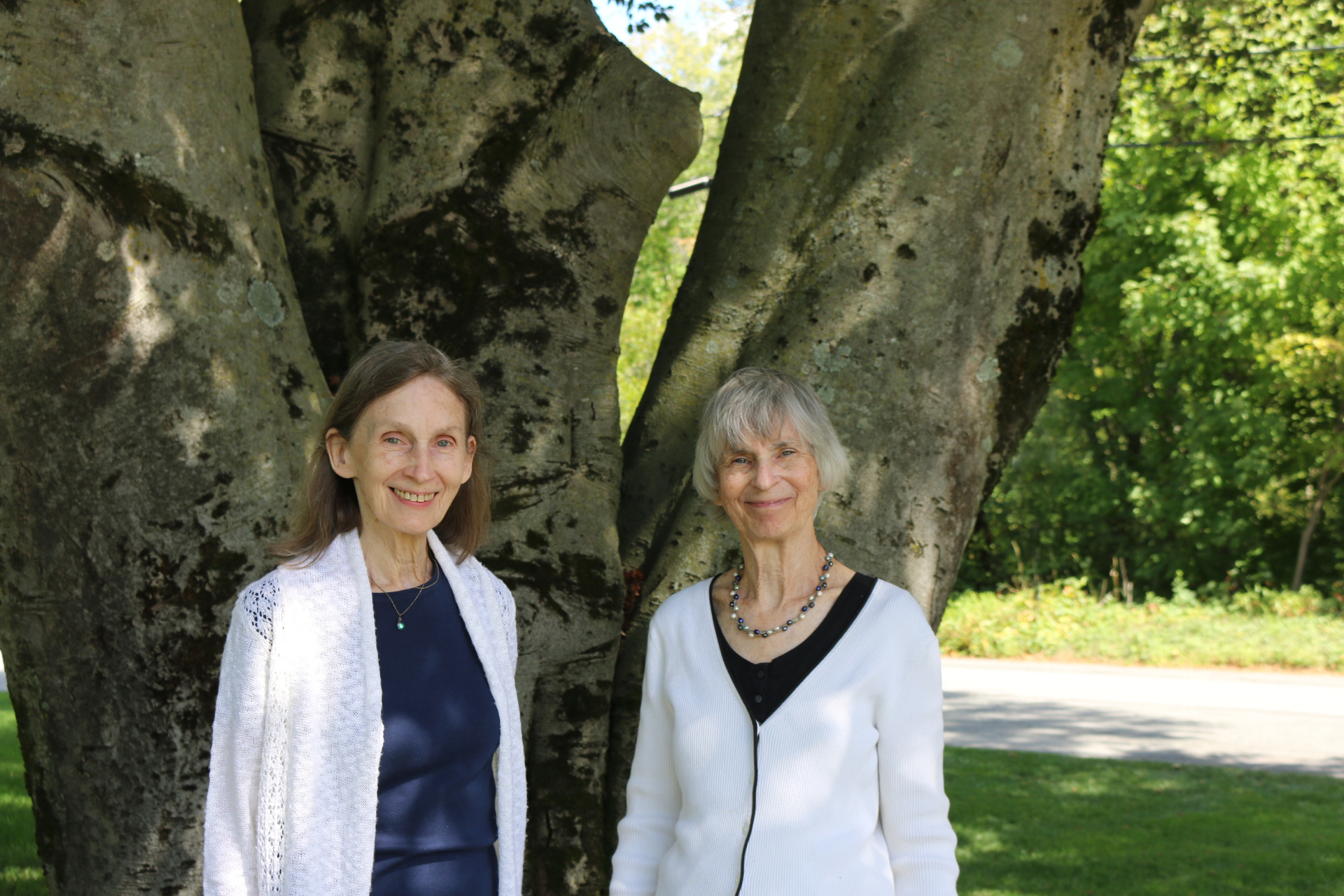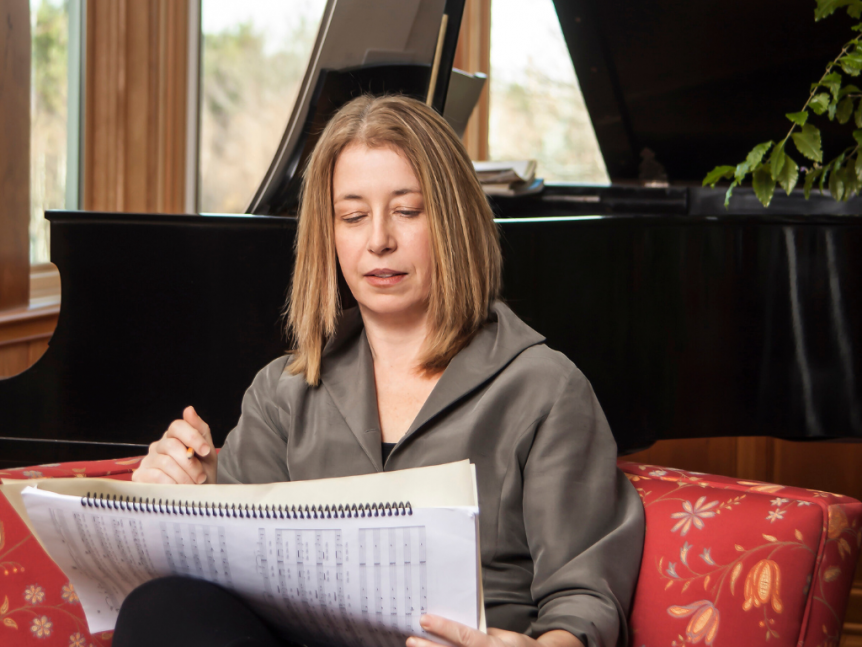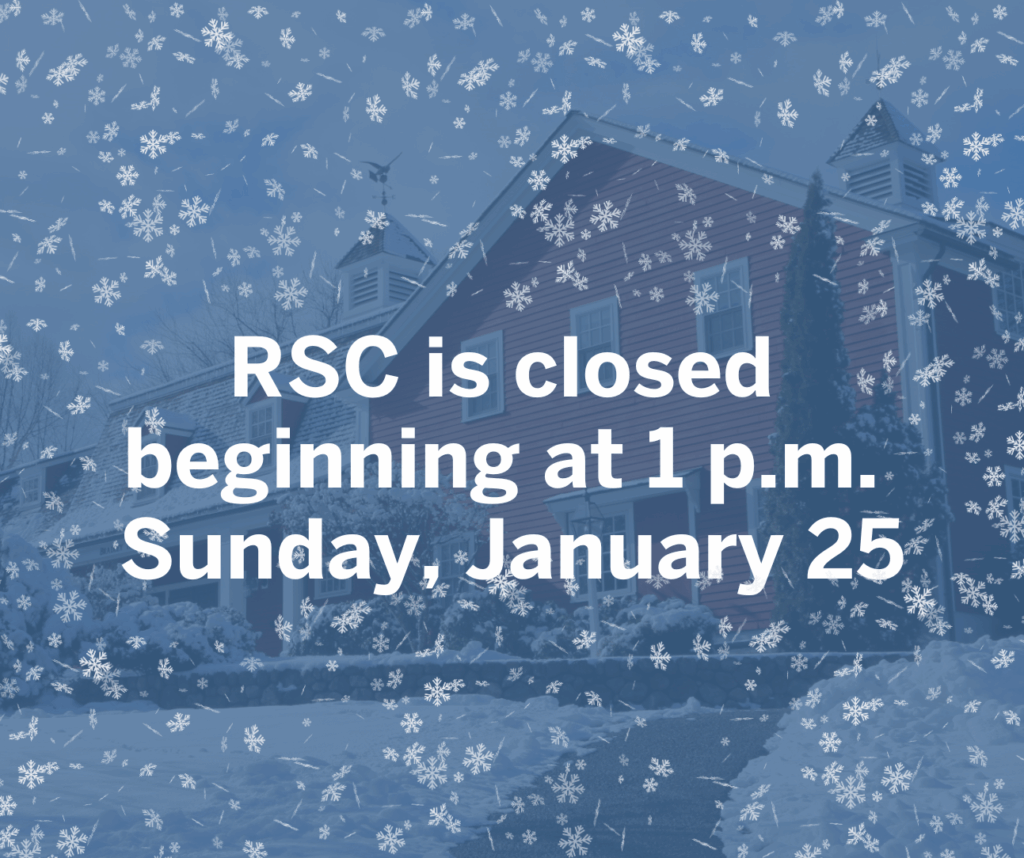If longevity and devotion are measures of a life well spent in music education, then sisters Ethel Farny and Anne Webb have set the bar high at the Rivers School Conservatory (RSC). Between the two, they have guided generations of students, shaped programs, and shared laughter and lessons across nearly four decades of teaching.

Farny’s journey began in 1986, when her eldest daughter enrolled at RSC to study piano with A. Ramón Rivera. At the time, Farny was teaching flute elsewhere, but as she spent more time on campus and got to know Rivera, she was offered the opportunity to teach at RSC. Her family soon became part of the RSC community, with three of her children studying music at RSC. Farny recalls fond memories of her youngest child learning to crawl downstairs in Blackwell while her eldest was in lessons upstairs.
Webb joined as a violin teacher a few years later, around 1990, after returning to the United States from nearly a decade in Europe, living as a professional musician in Salzburg and Munich. “When I came back, I auditioned and joined RSC, and I’ve been here ever since,” Anne shares. What began as one sister recommending another to a school she loved has grown into a rare familial partnership of two musicians, two educators, and one enduring connection to the school.
Over the years, their roles have evolved, but their dedication has remained unwavering. Farny has served as chair of the Wind Department for over 20 years and co-chair of contemporary music for 30 years. Webb, who was hired initially as a violin teacher, expanded her repertoire to include Scottish fiddle and viola.
Both sisters emphasize personal connection and enthusiasm as key components of their teaching philosophies. “One thing I love to do as a teacher is listen to the personality of the person I’m teaching”, Farny explains. “I become a slightly different person with each student. Some need very creative music, some need technical precision, and some just go sideways, but you adapt.”
Webb has a similar approach, adding that humor and imagery often shape her lessons. “I bring excitement and sometimes funny imagery to help students connect with a piece,” she says. For Webb, music should be as joyful as it is instructive.
For both sisters, performances and student growth remain the most motivating parts of teaching. Farny is energized by preparation for concerts. “I’m a very performance-oriented teacher. I love seeing students take the stage and give it their best.” Webb finds joy in watching students take ownership of their learning. “It’s magical when a struggling student applies themselves. The pride and independence that lights up in their face is what makes it worth it,” she says.
Teaching for four decades has given these women countless memories of standout students. Both agree that it’s always rewarding when a student goes on to become a musical star, but even more endearing are the lasting bonds they’ve formed with these students. Webb recalls a student who studied with her for five years. “Her mother told me during her senior year that I’d been a consistent presence in her daughter’s life, and that meant a lot to the family.”
Farny remembers a particularly serious student who approached every lesson and seminar performance with dedication. “From day one, she put her heart and soul into it,” Farny reflects. “Students like that have kept me on my toes—they make sure I’m always at the top of my game, too.”
The sisters light up when they talk about sharing both personal and professional lives at RSC. “We love it when we have students in common at concerts—it creates a bond that’s unique to us,” Farny shares. They laugh, recalling years of adventures together, part of their shared history at the school. Their sisterly relationship is undeniably strong, and while family ties run deep, the shared passion for music and RSC has allowed them to remain close over the years.
When asked to describe their teaching legacy at RSC, Farny and Webb agreed on two words: dedication and joy. “We both go the extra mile,” Farny says. “If a student needs an extra lesson, we give it. It’s about the students and their families, not the clock.” Webb adds, “I hope to be remembered as a friendly personality with the joy of life. Music is our passion, and we hope that shows.”


